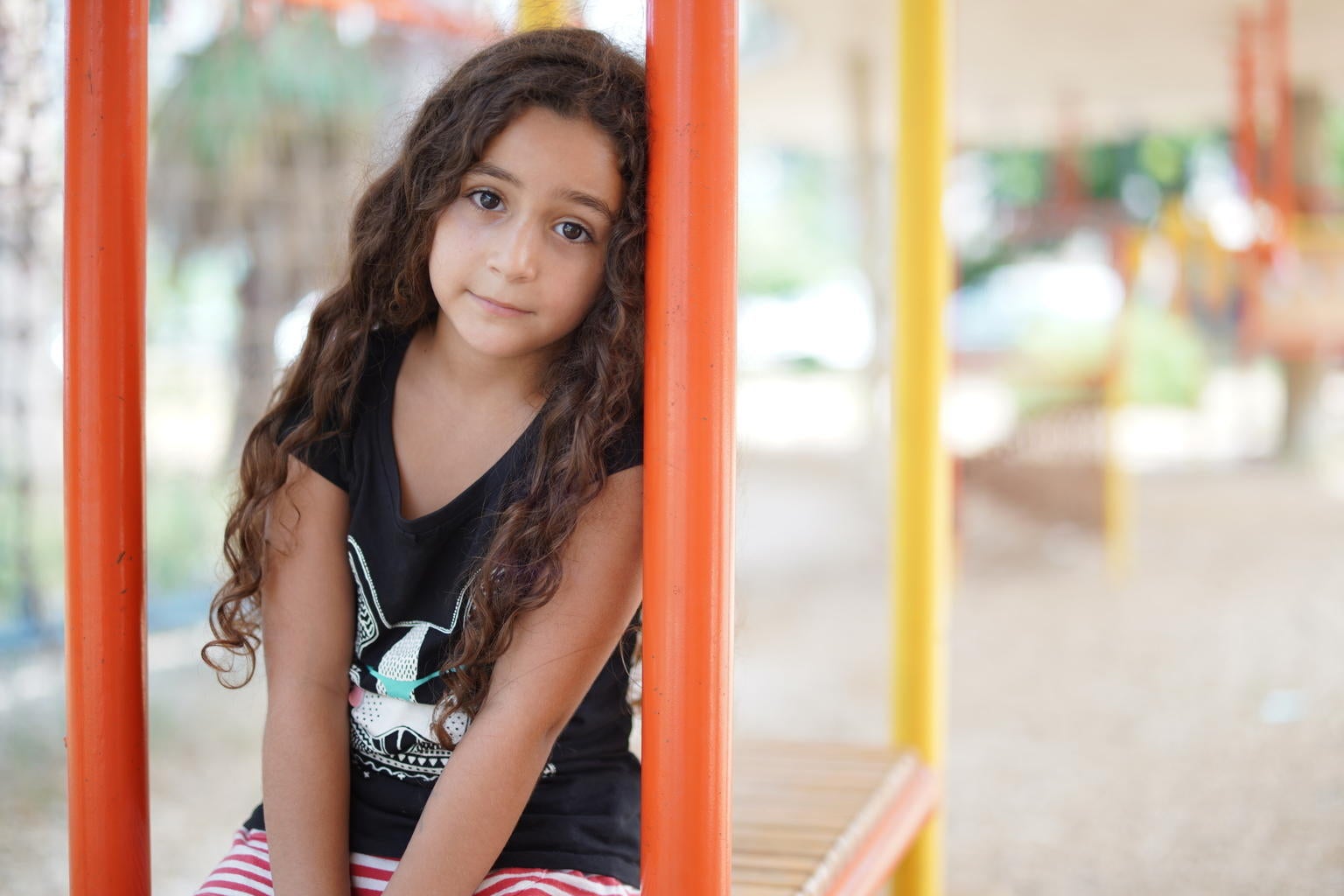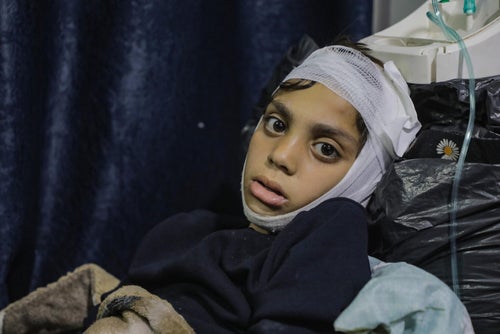“I feel different after the explosion. I’m always scared, and I still dream about the feeling of the blast. It keeps me awake at night,” says Hanan, eight.
On the evening of 4 August 2020, as families were at home preparing for the evening meal, explosions shook the city of Beirut, Lebanon. Schools, hospitals and homes surrounding the port were damaged or destroyed, leaving 100,000 children in need of life-saving assistance.
One month on, the children of Beirut have had their lives turned upside down.
Traumatised, displaced and unable to attend school, the impact on children has been severe. But they’ve also shown remarkable resilience and courage. These are their stories.
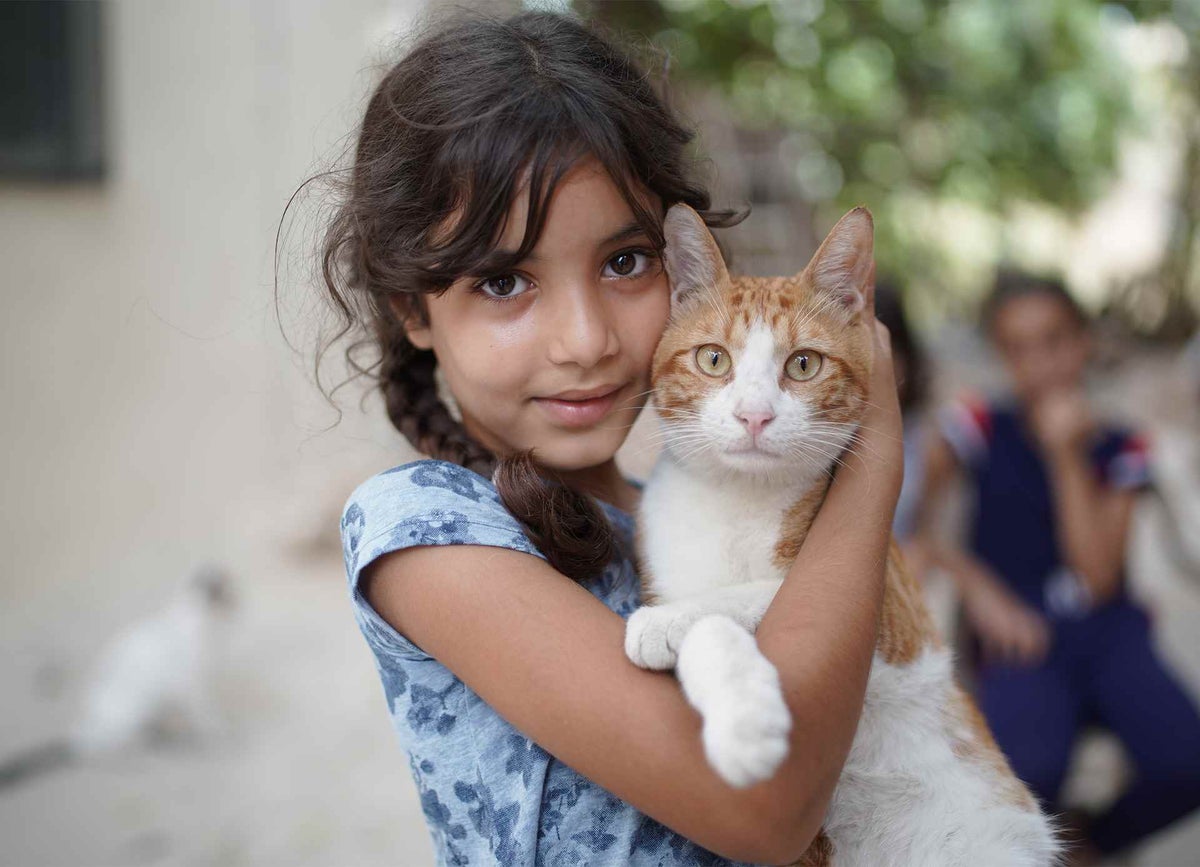
Traumatic memories
The sudden horror of the explosions, coupled with the creeping threats of COVID-19 and the wider instability, has left children traumatised and in need of psychosocial support.
Fatme, eight, was getting ready to visit her grandmother with her family when the explosion took place.
“My mother told me to go outside and I was crying with my sister Mimar. During the explosion, the roof fell down,” she says.
“Glass fell on the face of my cousin. She was bleeding and they took her to the hospital.”
Omar was also with his family during the blasts and witnessed his little brother’s severe injury.
“I took him and we went straight to the car with my dad who was driving fast. My brother was crying all the time,” says the seven-year-old.
“I remember the neighbourhood, the explosion and how the people left their homes. I want to leave this country; I don’t want to live here.”
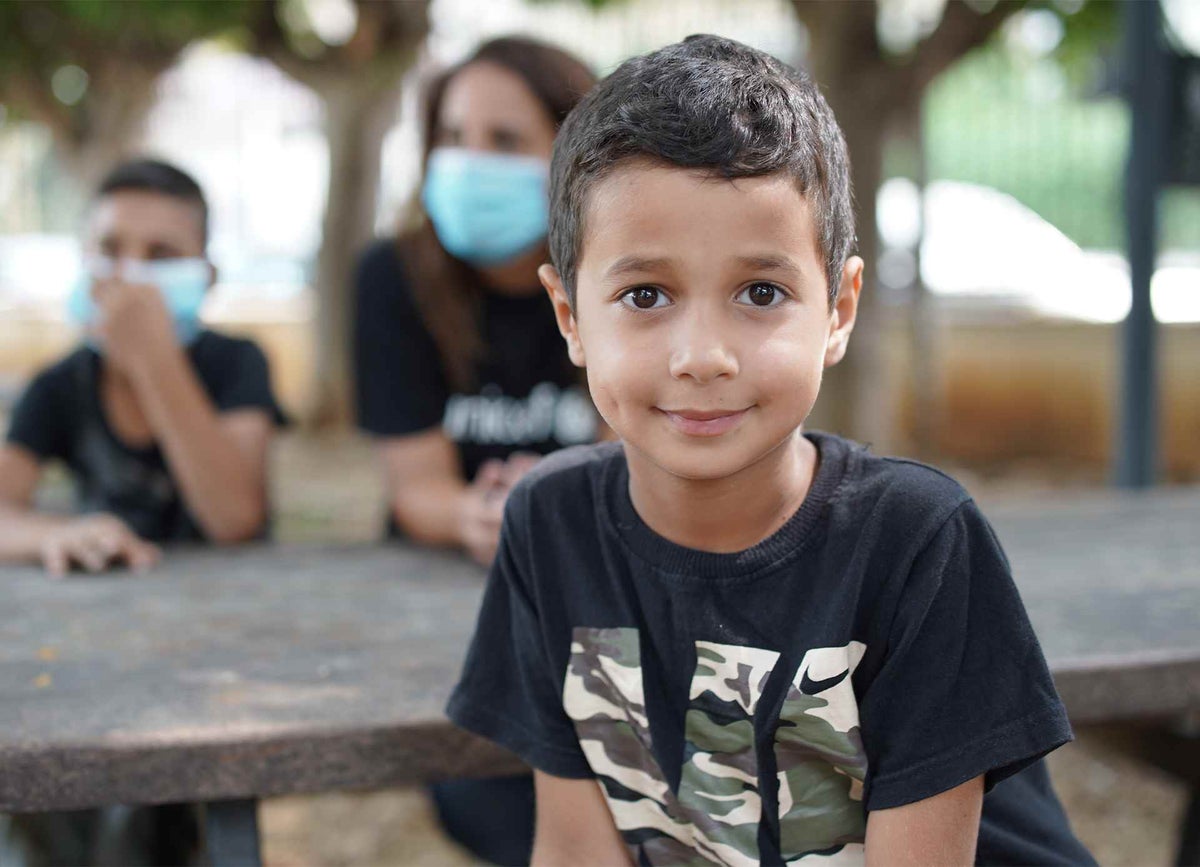
Feelings of anxiety, nightmares and trouble sleeping are all common symptoms of trauma. Following the explosion, 50 per cent of children were reported to show changes in behaviour or signs of trauma or extreme stress.
The psychological impact can be especially profound on children who have already experienced traumatic events or are living with disabilities.
“I have a younger sister with autism,” 21-year-old university student Nadiya explained to a UNICEF worker.
“She’s gone through the traumatic experience of the blast in Beirut, and now she’s come back to a home in chaos.”
Nadiya and her family live in the Karantina neighbourhood of Beirut, one of the worst affected areas where recovery will likely be long and slow. It is estimated that almost 600,000 children will need some form of support to help them cope with this experience.
In the immediate aftermath of the explosion, UNICEF and partners provided psychological first aid, reaching more than 1,700 children and 950 caregivers so far.
UNICEF has also scaled up counselling and mental health services. Support includes opening and expanding hotlines for trauma counselling, setting up child-friendly spaces in affected areas, and resources for parents on how to recognise trauma in their children and where to go for help.
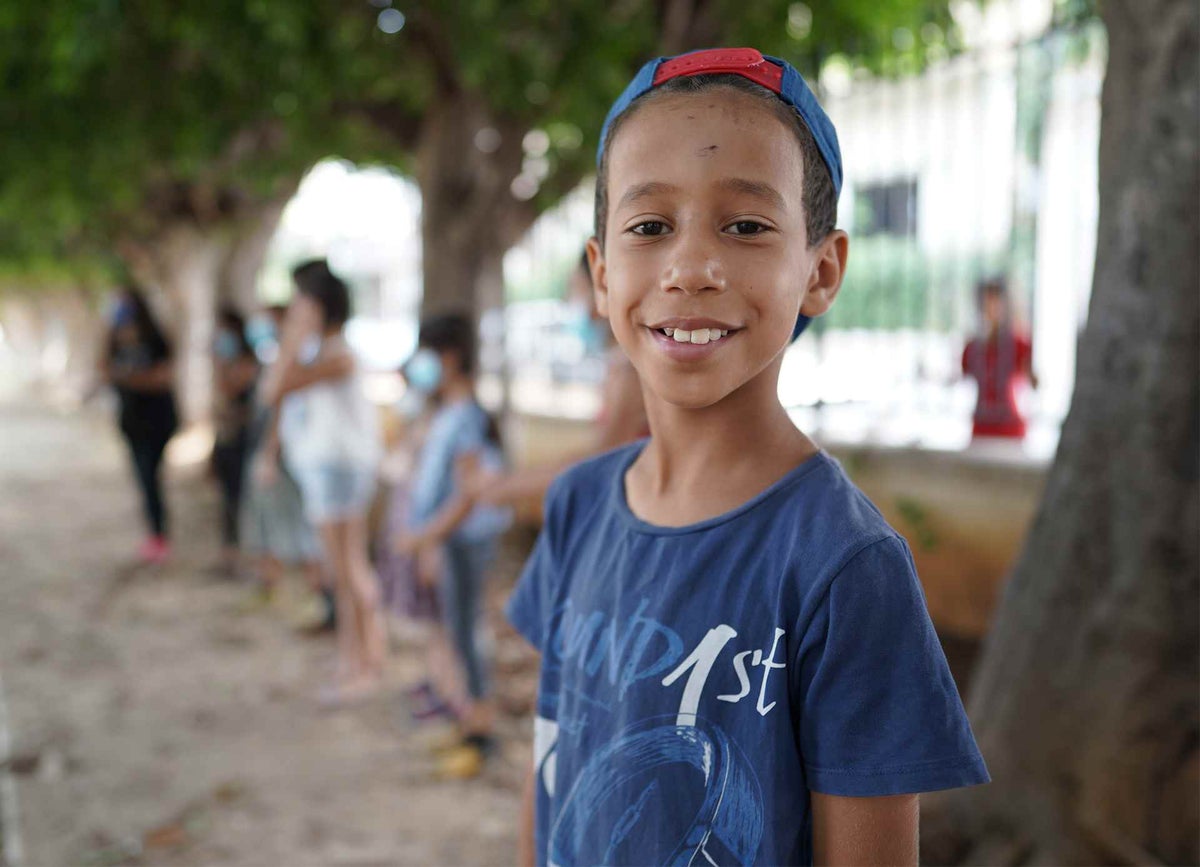
Education interrupted
Abdel, 10, does not know when he will be able to return to school. The buildings were damaged in the explosion and his teacher injured.
“I wish the explosion never happened,” says Abdel. “Maybe when my teacher gets better, we will study together again. I want to go to school to play, study, learn and have fun with my friends.”
More than 183 educational facilities were damaged in the explosion, affecting more than 85,000 children and youth.
Getting children back to education – whether in classrooms or via COVID-enforced distance learning – is critical. The safe space of a classroom or the structure of online learning can help children work through the traumatic experiences they have been through and return a sense of normalcy to their lives.
Child-friendly spaces, like the one Abdel and Omar attend at a public garden in Beruit, provide a safe space for children to play and learn.
“It’s not the same as school, but when you’ve lost as much as we have in this neighbourhood, something like this becomes really important.”
UNICEF and partners are supporting the rebuilding of primary schools and vocational training centres and replacement of furniture and equipment. UNICEF is also planning to distribute laptops and tablets and finding innovative ways to ensure children can continue learning at home.
For young people the focus will be on providing the skills they need to help rebuild the city – and offer them much needed jobs, helping to ease the pressure on their families’ finances.
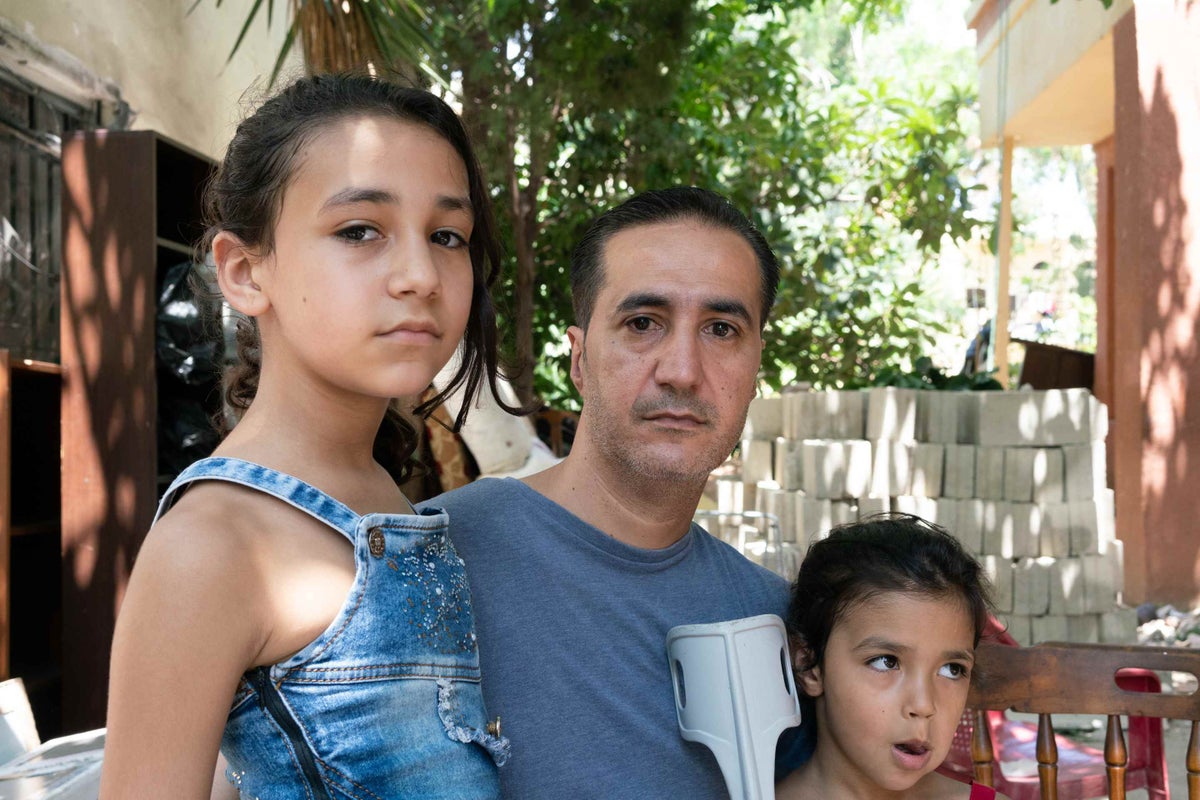
Rebuilding for the future
For the 300,000 people – including 100,000 children – whose homes were damaged or destroyed, the immediate priority is rebuilding or finding somewhere new to live.
Ahmad’s family no longer live together after their home was damaged. His children are split between his parents’ house in the mountains, and with himself and his wife in Karantina.
Ahmad hasn’t been able to see his son who has been in hospital since the explosion.
“I have simple needs now… I only want someone to replace the roof that collapsed so that I can bring my children back so we can be a family again,” says Ahamd.
“Next month, schools should reopen – I’m also worried there won’t be a place in the local school for my children.”
Emergency cash assistance can help families like Ahmad’s who have faced multiple crises to cope and recover. Cash assistance enables families to prioritise what they need – food, money for repairs or rent, medicine or education – and live with dignity.
A new Emergency Cash Assistance program by UNICEF in response to the Beirut explosions aims to reach up to 80,000 people – mainly families with children in the poorest and most affected neighbourhoods.
UNICEF will continue to focus its efforts on keeping children safe and providing psychosocial support for recovery, as well as rehabilitating basic essential services, including water and sanitation, education and health infrastructure so the city can rebuild.
The needs in Lebanon are immense. If you can please consider supporting children affected by this tragedy.
DONATERelated articles
Stay up-to-date on UNICEF's work in Australia and around the world



